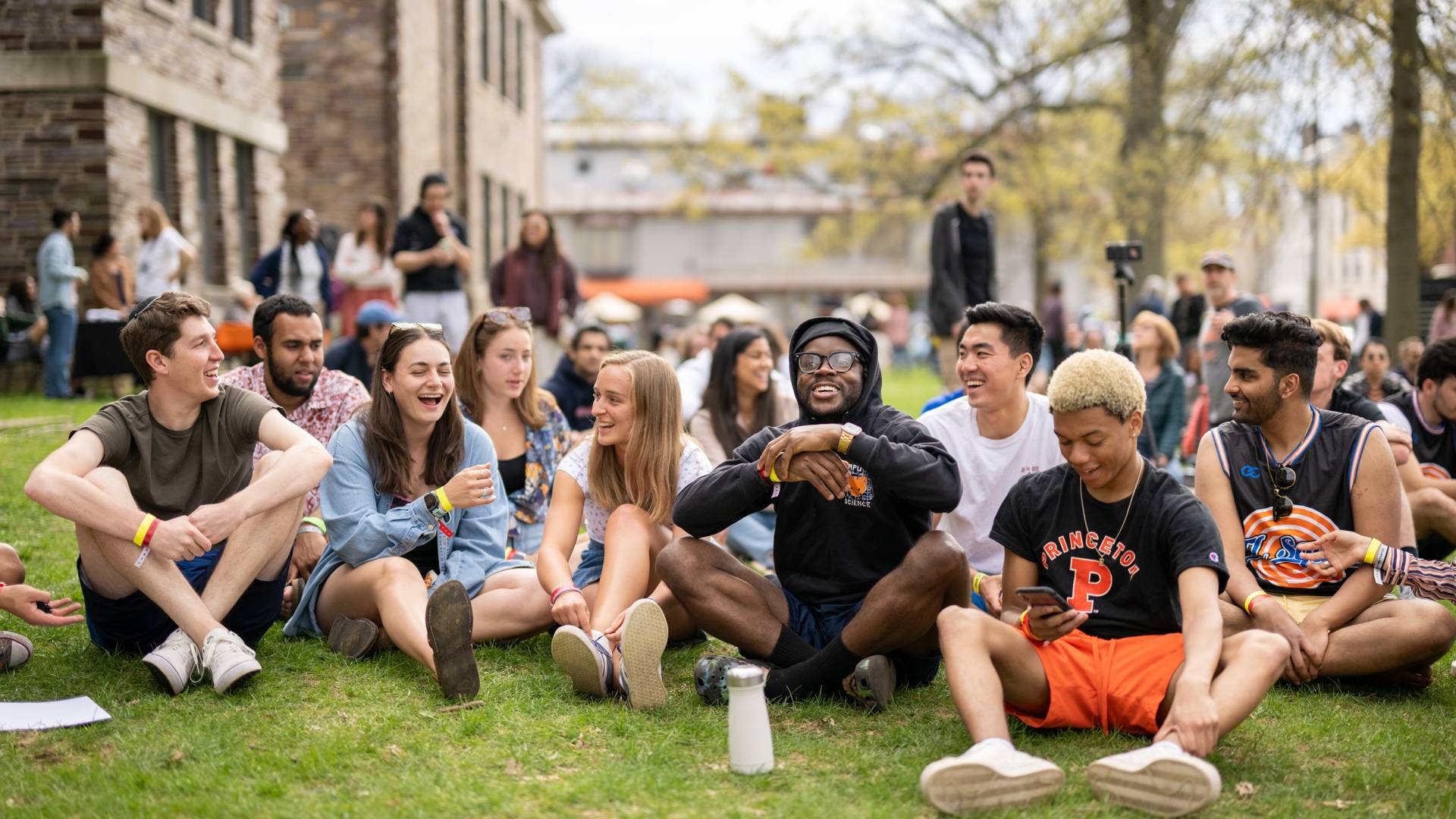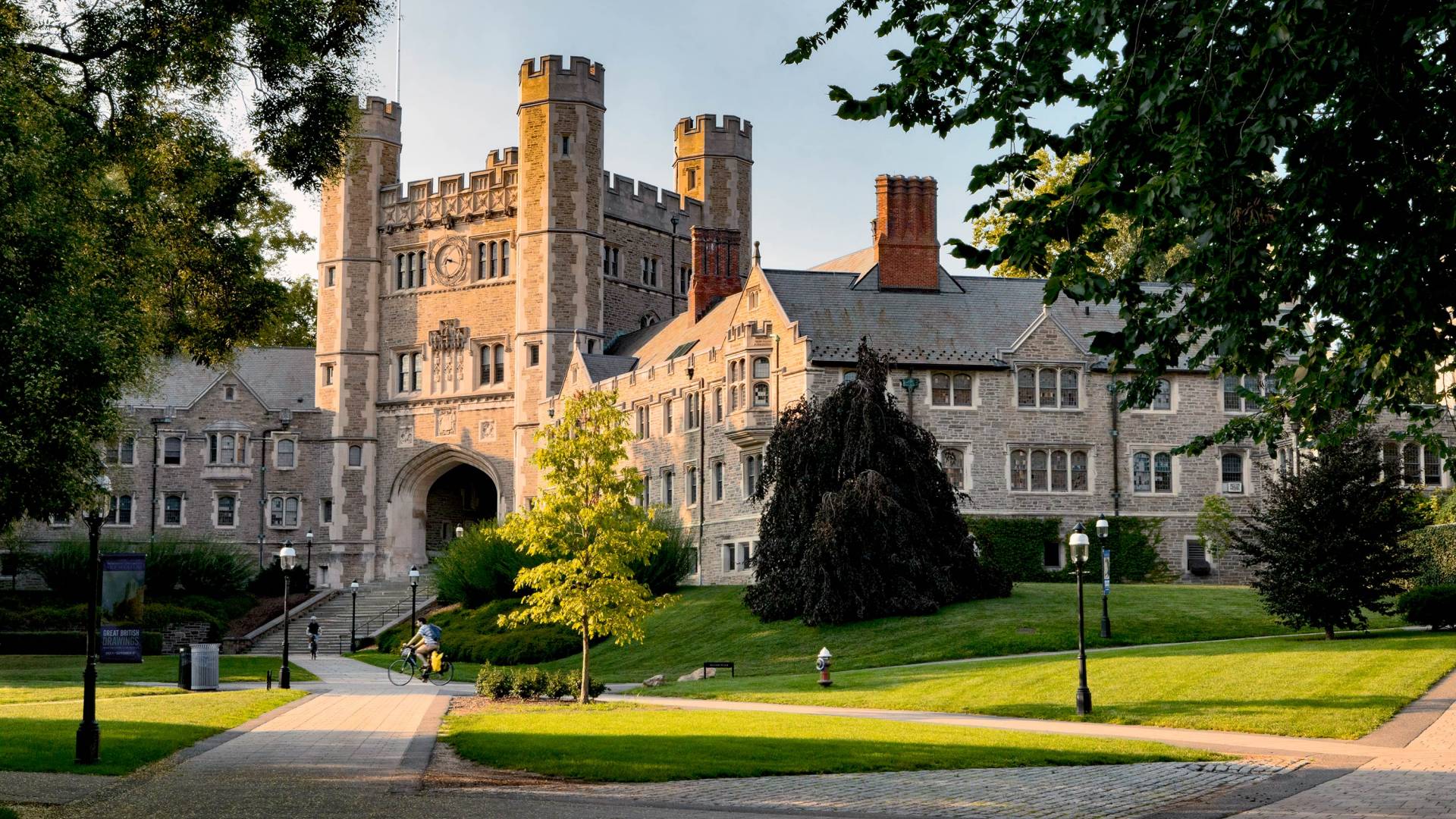Princeton University is one of the most prestigious institutions in the world, known for its rich academic tradition, historical significance, and groundbreaking research. Nestled in the serene town of Princeton, New Jersey, this Ivy League institution has a reputation for academic excellence and a vibrant campus life that makes it a top choice for students globally. With a history dating back to 1746, Princeton has been a center for intellectual pursuit, fostering leaders across various fields.
Location and Campus
Princeton University is located in Princeton, New Jersey, approximately halfway between New York City and Philadelphia. The town itself is picturesque and offers a blend of colonial charm and modern sophistication. The university’s sprawling 500-acre campus is known for its Gothic-style architecture, beautifully landscaped gardens, and historic landmarks like Nassau Hall and the Princeton University Chapel. The campus is a blend of historical buildings and state-of-the-art facilities, creating an environment where tradition meets innovation.
Walking around the campus, you can’t miss the stunning Princeton University Art Museum, which houses over 100,000 works of art. Other notable landmarks include the Firestone Library, which holds over 7 million volumes, and the majestic Woodrow Wilson School of Public and International Affairs.
History and Foundation
Princeton University was founded in 1746 as the College of New Jersey, making it the fourth-oldest college in the United States. It was originally established in Elizabeth, New Jersey, before moving to its current location in Princeton in 1756. Over the years, Princeton has played a significant role in American history. In fact, during the American Revolution, Nassau Hall briefly served as the seat of the U.S. government.
In 1896, the institution officially changed its name to Princeton University to reflect its expanding academic ambitions. Throughout its history, Princeton has been home to influential figures, from U.S. presidents to renowned scholars and Nobel laureates, cementing its place as a world leader in higher education.
Academics at Princeton University
Princeton offers a diverse range of undergraduate and graduate programs, consistently ranking among the top universities globally. It’s particularly known for its programs in public policy, economics, engineering, and the humanities. With a student-to-faculty ratio of 5:1, Princeton emphasizes small class sizes and individualized attention, allowing students to engage deeply with faculty and their studies.
Departments like the School of Engineering and Applied Science and the Woodrow Wilson School are internationally recognized for their rigorous academics and impact on public discourse. Princeton’s undergraduate program is unique in that it requires all students to complete a senior thesis, a year-long independent research project that exemplifies the school’s commitment to scholarly inquiry.
Research and Innovation
Princeton University is a hub of cutting-edge research and innovation, housing numerous research centers such as the Princeton Plasma Physics Laboratory and the Andlinger Center for Energy and the Environment. The university has a long history of contributing to major scientific discoveries, including Albert Einstein’s association with the Institute for Advanced Study, which was founded at Princeton.
From pioneering work in artificial intelligence to groundbreaking studies in neuroscience and economics, Princeton continues to be at the forefront of global research. Its commitment to interdisciplinary study ensures that students and faculty from various fields collaborate on projects that address some of the world’s most pressing challenges.
Notable Alumni and Faculty
Princeton’s alumni network is one of the most impressive in the world. U.S. Presidents like James Madison and Woodrow Wilson graduated from Princeton, along with First Lady Michelle Obama and tech pioneers like Jeff Bezos, founder of Amazon. Additionally, the university has produced numerous Nobel Prize winners, Rhodes Scholars, and Fields Medalists.
The faculty at Princeton is equally distinguished, featuring renowned scholars and public intellectuals. Professors like Paul Krugman, a Nobel laureate in economics, and Toni Morrison, a Pulitzer Prize-winning author, have taught at Princeton, adding to its intellectual prestige.
Student Life at Princeton University

Life at Princeton is about more than just academics. The university fosters a strong sense of community through its residential college system, which creates smaller, close-knit communities within the larger university setting. Students are housed in one of six residential colleges, where they live, dine, and participate in activities throughout their undergraduate years.
The university offers over 300 student organizations, covering everything from politics and entrepreneurship to performing arts and sports. Princeton is also famous for its traditions, such as the Princeton Lawnparties and the annual P-rade, where alumni come together to celebrate their time at the university.
Princeton’s Ivy League Connection
The Ivy League, a group of eight private universities in the northeastern U.S., is synonymous with academic excellence and historical significance. Princeton is often regarded as one of the top institutions within the Ivy League, consistently ranking alongside Harvard and Yale. The university’s Ivy League affiliation adds to its prestige, as it shares a history of athletic competition and academic collaboration with its Ivy peers.
Admission and Acceptance Rates
Gaining admission to Princeton is highly competitive, with an acceptance rate hovering around 4-5%. Prospective students must submit a comprehensive application, including standardized test scores, essays, and letters of recommendation. Princeton looks for students who demonstrate exceptional academic performance, leadership qualities, and a commitment to service.
Financial Aid and Scholarships
Princeton University is one of the few institutions that offers a need-blind admission policy, ensuring that students are admitted based on their merit and not their financial circumstances. Once accepted, students can benefit from Princeton’s generous financial aid packages, which often cover the full cost of tuition, room, and board for students from low- and middle-income families. The university’s policy ensures that all admitted students can afford to attend, regardless of financial background.
Diversity and Inclusion at Princeton
Princeton is committed to fostering a diverse and inclusive campus. The university continually works to increase representation across gender, race, and socioeconomic backgrounds. Initiatives like the Princeton University Preparatory Program (PUPP) help students from underrepresented communities prepare for college, while campus organizations like the Carl A. Fields Center for Equality and Cultural Understanding provide resources and support for students from diverse backgrounds.
Athletics and Sports Programs
Princeton’s athletic tradition is an integral part of campus life. With 37 varsity teams, the university competes in the NCAA Division I Ivy League, excelling in sports like rowing, basketball, and soccer. Athletic facilities such as the Jadwin Gymnasium and Princeton Stadium are top-tier, and the student-athlete community is an important aspect of campus culture.
Arts and Culture on Campus
Art and culture are at the heart of Princeton’s vibrant campus life. The Lewis Center for the Arts hosts numerous performances, exhibits, and workshops, giving students ample opportunities to explore creative endeavors. Additionally, the Princeton University Art Museum is one of the finest university museums in the world, and students have access to Broadway-level productions and concerts throughout the academic year.
Community Engagement and Public Service
Princeton’s motto, “In the Nation’s Service and the Service of Humanity,” reflects its dedication to community involvement and public service. The Pace Center for Civic Engagement connects students with opportunities to volunteer and lead service projects locally and globally. Programs like Princeton in Asia and Princeton in Africa enable students to work on important service projects around the world.
Conclusion
Princeton University stands as a beacon of excellence, not just in academics, but in fostering leadership, innovation, and public service. Its blend of rich history, cutting-edge research, and vibrant student life makes it a dream destination for many aspiring students. As Princeton continues to evolve, it remains deeply committed to its mission of creating an inclusive, diverse, and intellectually stimulating environment for future generations.
FAQs
- What is Princeton University known for?
- Princeton is renowned for its rigorous academic programs, especially in public policy, economics, and engineering, as well as its rich tradition of leadership and research.
- How hard is it to get into Princeton University?
- With an acceptance rate of around 4-5%, admission to Princeton is highly competitive, requiring excellent academic credentials and a strong overall application.
- Does Princeton offer online degrees?
- Princeton does not currently offer online degree programs, although it provides a variety of online courses and resources.
- What majors are most popular at Princeton?
- Popular majors at Princeton include Computer Science, Economics, Public Policy, and Molecular Biology.
- How does Princeton support international students?
- Princeton offers robust support for international students through its International Student Services, financial aid programs, and global study opportunities.
